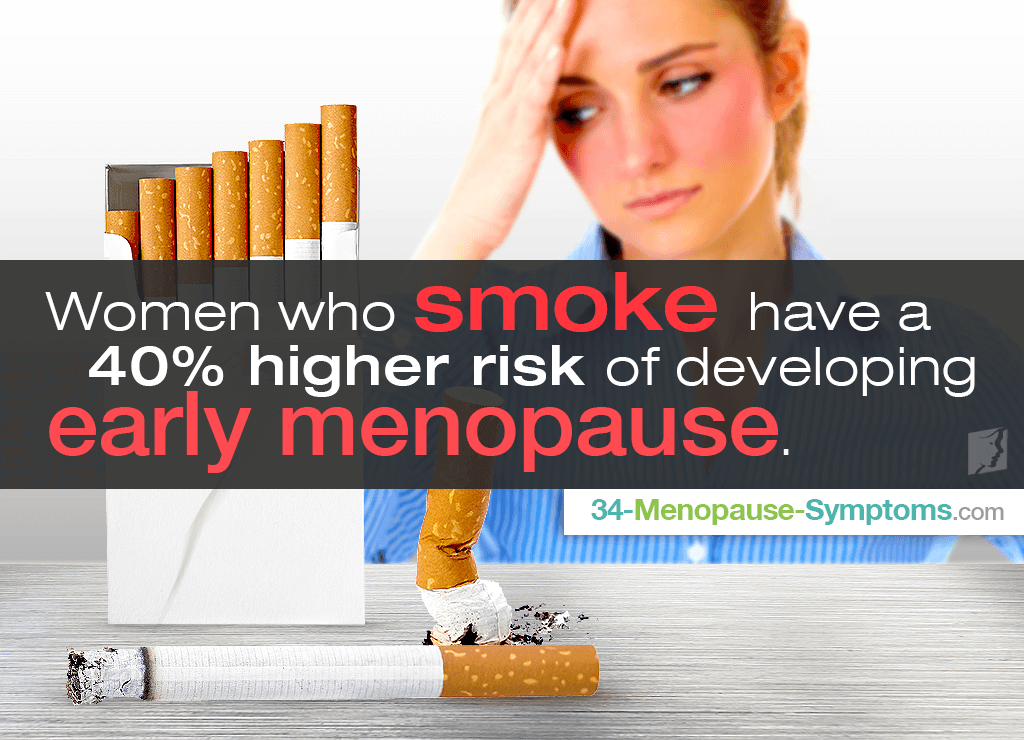Early menopause can be natural or medically induced. Symptoms include hot flashes, chronic fatigue, and mood swings, among others. Read on to find about early menopause.
What Is Early Menopause?
Typically, early or premature menopause is when menopause happens when a woman is still in her 20s, 30s, or early 40s. Medical experts describe early menopause as a total cessation of a woman's period for 12 months before the age of 40. If premature menopause occurs naturally, it is commonly referred to as premature ovarian failure (POF). POF indicates the ovaries have stopped functioning at their optimal years or sometimes decades before their time. Recent studies have found that approximately 25% of women suffering from POF still have viable follicles and do ovulate, and 80% actually become pregnant.
Early menopause can also be medically induced by a variety of procedures, including surgery, radiation or chemotherapy treatment occurring. Surgeries that can induce early menopause usually involve the ovaries, such as hysterectomies or oophorectomies.
What Are the Symptoms of Early Menopause?
Symptoms of early or premature menopause are similar to those experienced during the more standard menopause. However, menopausal symptoms are often more severe in early menopause than in menopause that occurs during your 50's.
Common symptoms of early menopause include:
- Hot flashes
- Night sweats
- Irregular periods
- Irritability
- Itchy skin
- Vaginal dryness
- Incontinence
- Dry skin, eyes or mouth
- Decreased libido
- Joint pain
- Muscle tension
Can I Prevent Early Menopause?
Studies show some women can prevent early menopause. Researchers believe risk can be reduced by making certain lifestyle changes. Some common factors that may increase the likelihood of early menopause include:
Smoking. Studies have shown women who smoke have a 40% higher risk of developing early menopause and certain types of cancer than women who don't.
- Weight. Being underweight can alter hormonal balances reducing the amount of estrogen produced.
What Kinds of Treatments Are There for Early Menopause?
There are a variety of ways to treat early menopause, include eating a balanced diet, limiting intake of caffeine and alcohol, maintaining a healthy weight, and reducing smoking. Doing these can help reduce symptoms of menopause. There are also a variety of stronger treatments, if your symptoms are severe, such as hormone replacement therapy (HRT). If you have early menopause, talk to your doctor about what the best course of action is.
More Information
If you have moderate to severe symptoms, then you should talk to your doctor, as he or she can help find which treatment is right for you. Remember that there are a variety of other conditions with similar symptoms to early menopause, so make sure your doctor runs a full spectrum of tests to rule out other things, such as ovarian cancer or polycystic ovary syndrome.
Sources
- BMJ Group. "Menopause: What is it?" Patient Leaflet. 2007.
- Hopkins, Virginia. Lee, John R. M.D. What Your Doctor May Not Tell You About Menopause. New York: Warner Books Inc., 1996.
- Love, Susan M.D. Menopause and Hormone Book. New York: Three Rivers Press, 2003.
- Martin, Raquel. The Estrogen Alternative. Rochester, VT: Healing Arts Press, 2000.




